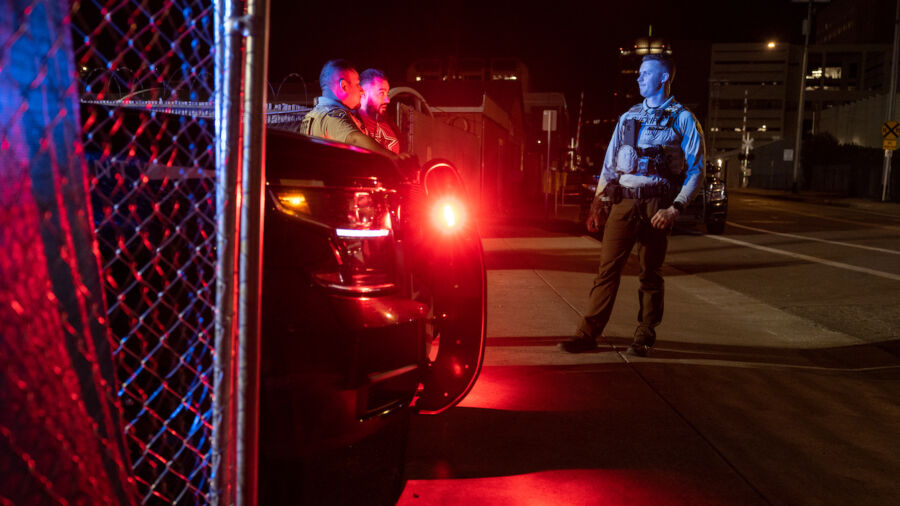A federal judge has struck down a law that restricts the recording of law enforcement, declaring the law unconstitutional.
The Republican-backed law—House Bill 2319—signed by former Republican Gov. Doug Ducey in July 2022, would limit how close people can get to law enforcement officers while recording them.
Under the law, if the officer tells the person to stop recording, then it is illegal to knowingly film law enforcement at 8 feet or closer. If the person recording the video refuses to stop, they could face a misdemeanor charge and as many as 30 days in jail.
Also under the legislation, the officer when on private property would be able to order the person to stop filming if the officer deems that the person is interfering or that the area is unsafe.
In the Friday ruling (pdf), U.S. District Judge John J. Tuchi wrote that the law “prohibits or chills a substantial amount of First Amendment protected activity and is unnecessary to prevent interference with police officers given other Arizona laws in effect.”
The judge’s latest ruling permanently blocks enforcement of the law that he suspended via a temporary injunction in September 2022. The legislation has never taken effect.
Legislators refused an opportunity to defend the legislation during its initial court suspension. Republican state Sen. John Kavanagh, a former police officer who sponsored the measure, had noted that former Arizona Attorney General Mark Brnovich didn’t show up in court when plaintiffs successfully sought for the initial injunction. Mr. Kavanagh also said he was unable to find an outside group to defend the legislation.
Mr. Tuchi’s ruling is on a settlement agreement (pdf) that plaintiffs, listed as various media organizations and civil rights advocates, recently reached with the office of Arizona Attorney General Kris Mayes to have the law officially declared unconstitutional for violating the First Amendment.
As part of the settlement agreement, the attorney general’s office also acknowledges that “there is a clearly established right to record law enforcement officers engaged in the exercise of their official duties.”
The approval of the settlement also means that the attorney general’s office will reimburse the plaintiffs $69,000, of which $23,000 goes to the plaintiff ACLU of Arizona, and $46,000 goes to plaintiffs in care of their attorneys.
“We’re very happy that we have hopefully put an end to this case and to this unconstitutional law,” Matthew Kelley, the attorney representing the plaintiffs, told the Arizona Mirror earlier in July.
“It should send a message to the state legislature that if they persist in passing legislation that is unconstitutional, it’s going to get overturned in the courts, and it’s going to cost the state money, both to defend such laws and attorney’s fees to the plaintiffs who have to go to court to overturn those laws,” Mr. Kelley added.
Mr. Kelley also said that he was grateful that Ms. Mayes acknowledged that the law was unconstitutional and also agreed (pdf) to reimburse the plaintiffs for some of their legal fees, the Arizona Mirror reported.
Bystander cellphone videos are largely credited with revealing police misconduct—such as with the 2020 arrest of George Floyd—and in reshaping the conversation around police transparency. But Republican Arizona lawmakers initially said the legislation was needed to limit people with cameras who deliberately impede officers.
The Associated Press contributed to this report.
From The Epoch Times

